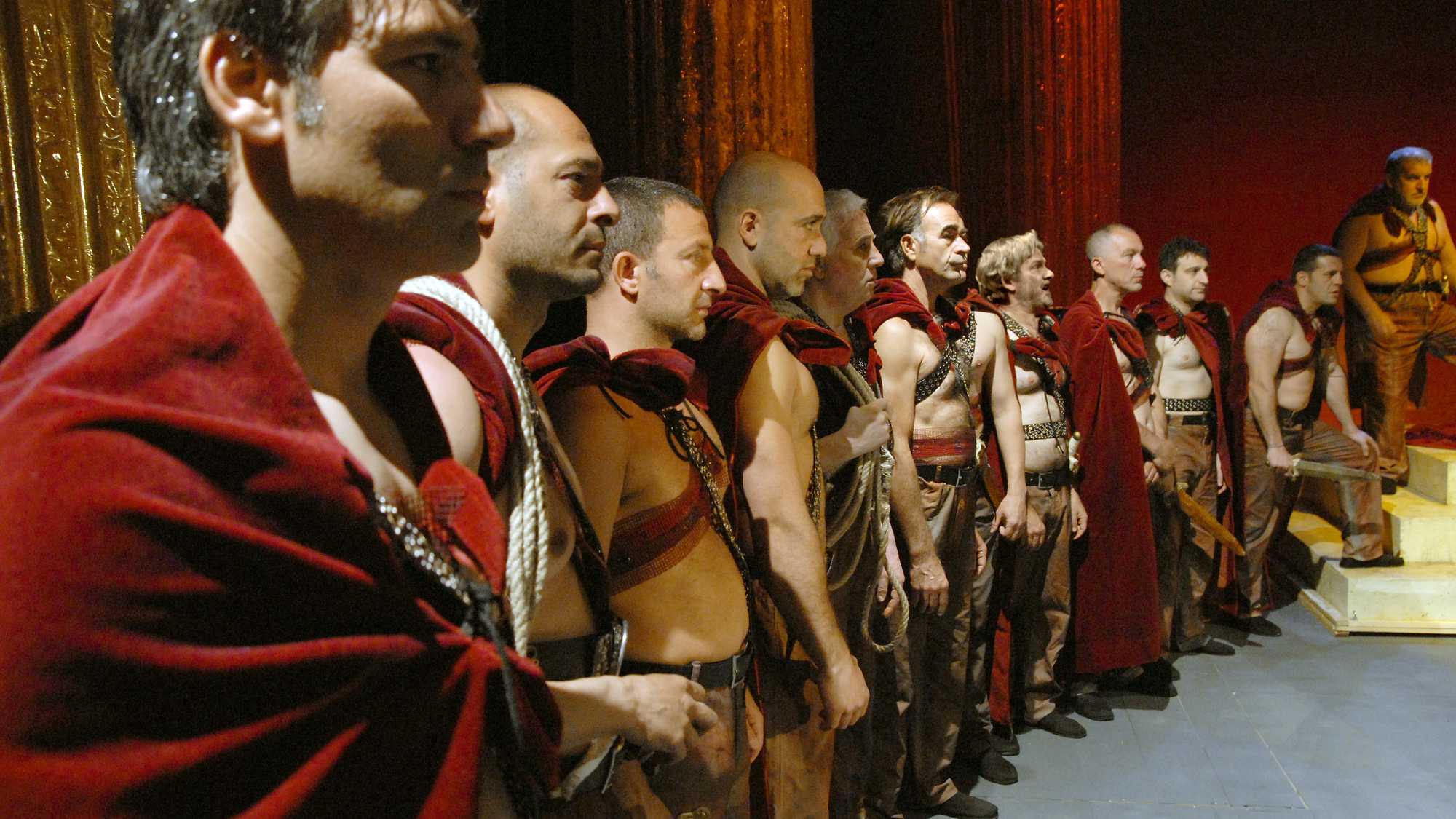Shakespeare’s Julius Caesar is illuminated by a cast of Italian prisoners who bring a load of experience to its tale of loyalty, conspiracy and murder. Directed by Paolo and Vittorio Taviani. Golden Bear, Best Film, Berlin Film Festival 2012.

A stimulating marriage between theater and harsh reality.
Screened as part of NZIFF 2012
Caesar Must Die 2012
Cesare deve morire
Stirring films by Italy’s Paolo and Vittorio Taviani, such as Padre Padrone, Kaos and Night of the Shooting Stars, dominated many a festival in the 70s and 80s. The brothers, now 80 and 82, were summoned anew to the podium in Berlin this February. A jury headed by Mike Leigh awarded the Festival’s Golden Bear for Best Film to their stripped-back production of Shakespeare’s Julius Caesar, a work as raw and striking in its marshalling of rough-hewn ‘found’ talent as the films that first made their names. Casting prisoners from the high-security wing of Rome’s Rebibbia jail, the Tavianis stage key scenes from the play within the confines of the prison. It’s hardly an unprecedented manoeuvre, but what’s unusual is that the familiar process is reversed; here it’s the prisoners who illuminate the Bard. Not quite the documentary it may seem, the film introduces scripted departures from Shakespeare’s text to accentuate the Tavianis’ essential inspiration: that a band of burly drug runners and ex-mafiosi bring a load of experience and understanding to a play about power, loyalty, envy, conspiracy and murder. They (and we) are rewarded with interactions of amazing directness, heat and, in the key roles, engrossing intelligence too. — BG
“As one inmate confides upon returning to his routine existence after the exhilaration of a rapturously received performance, ‘Ever since I discovered art, this cell has truly become a prison.’ Even at this stage in their lives and careers, the Tavianis remain deeply aware of such contradictions and paradoxes, and it’s this that makes Caesar Must Die so humane, intelligent and affecting.” — Geoff Andrew, Time Out